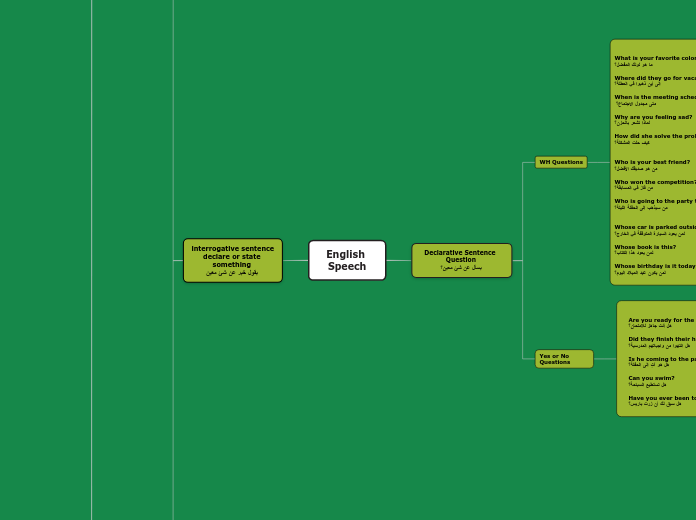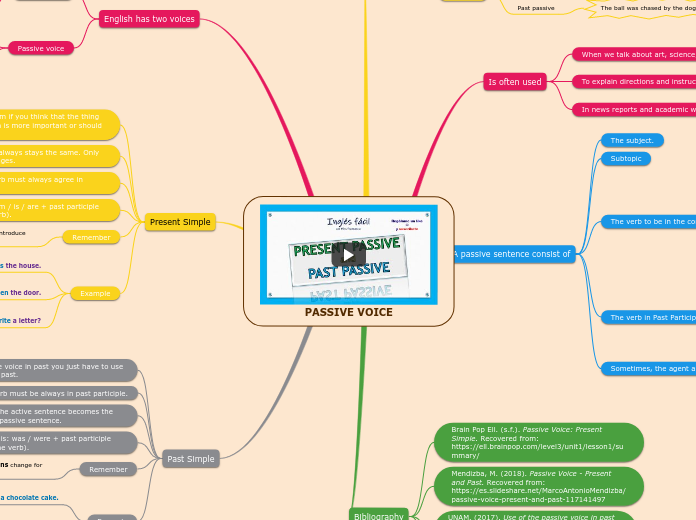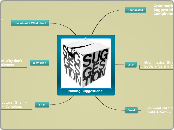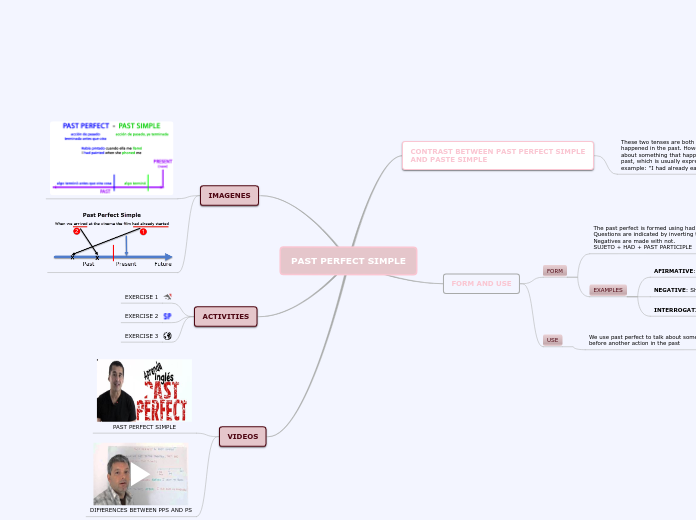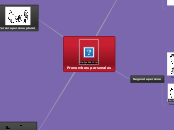English Speech
interrogative sentence declare or state something
بقول خبر عن شئ معين
Nominal sentence جملة إسمية
predicate خبر
Beginning مبتدأ
Verbal sentence جملة فعلية
Object مفعول به
Subject فاعل
Pronouns - ضمائر
I
He
She
It
We
You
They
I have a book. (لدي كتاب.)
He is my friend. (هو صديقي.)
She likes to dance. (تحب أن ترقص.)
We went to the park. (ذهبنا إلى الحديقة.)
You can borrow my pen. (يمكنك أن تستعير قلمي.)
They are playing soccer. (هم يلعبون كرة القدم.)
Nouns - أسماء
Ali
Doctor
Fish
Elephant
Sarah is my best friend. (سارة هي صديقتي الأفضل.)
John is a talented musician. (جون هو موسيقي موهوب.)
Emily won the first prize in the competition. (فازت إيميلي بالجائزة الأولى في المسابقة.)
Ahmed is studying medicine at the university. (أحمد يدرس الطب في الجامعة.)
Sophia is an excellent dancer. (صوفيا هي راقصة ممتازة.)
David is a successful businessman. (ديفيد رجل أعمال ناجح.)
Aisha is going to travel to Europe next month. (عائشة ستسافر إلى أوروبا الشهر المقبل.)
Verb فعل
Auxiliary Verb فعل مساعد بيساعد الفعل الأساسى للإشارة إلى وقت أو زمن حدوث الفعل وبرضو بيساعد فى تكوين الأسئلة
(Modal Verbs) وهي الأفعال الثانوية
I can swim in the pool. (أستطيع السباحة في المسبح.)
You could try the new restaurant. (يمكنك أن تجرب المطعم الجديد.)
He may arrive late for the meeting. (قد يصل متأخرًا للمقابلة.)
She might visit her parents this weekend. (ربما تزور والديها في نهاية الأسبوع.)
We must finish the project by tomorrow. (يجب علينا إنهاء المشروع بحلول غدٍ.)
You shall not pass! (لن تمرَّ! - Used for emphasis)
They should study for the exam. (يجب عليهم أن يدرسوا للامتحان.)
I will visit my grandmother next week. (سأزور جدتي الأسبوع المقبل.)
If I had more time, I would travel the world. (إذا كان لدي المزيد من الوقت، لسافرت حول العالم.)
الإستخدام
النصيحة
had better - نصيحة مشددة
It is cold outside, you had better wear a coat - الجو بارد بالخارج الأفضل لك أن ترتدى بالطو
Ought to - ينبغى أن
لا تستعمل فى النفى ولا السؤال
you ought to go to the dentist if your teeth hurt
Should - ينبغى أن
should I call here? - هل ينبغى على ان أتصل بها
you Should do your homework - ينبغى عليك أن تفعل الواجب
الإقتراح
تأتى فقط فى حالة السؤال؟
Shall we go out for a walk? هلا خرجنا للمشى
القدرة
ماضى
Could
I Could hear you - إستطعت سماعك
مضارع
Can
I can hear you - انا أستطيع سماعك
كلمات مساعدة أو إضافية نضيفها علشان تبين الحالة العامة للجملة هل الجملة طلب - إقتراح - نصيحة - تأكيد - إستئذان
مش بتأخد S
الفعل يأتى بعدها فى المصدر
بنحطها فى الأول عند تكوين السؤال
(Primary verbs) وهي الأفعال أساسية
Verb to Have
Had
She had already eaten dinner when I arrived. (كانت قد تناولت العشاء بالفعل عندما وصلت.)
They had a great time at the party last night. (قضوا وقتًا رائعًا في الحفلة الليلة الماضية.)
We had a long conversation about our future plans. (كان لدينا محادثة طويلة حول خططنا المستقبلية.)
He had never traveled abroad until last year. (لم يسبق له أن سافر إلى الخارج حتى العام الماضي.)
Had you seen that movie before? (هل رأيت هذا الفيلم من قبل؟
Have
We have a family gathering this weekend. (لدينا تجمع عائلي في نهاية هذا الأسبوع.)
They have a lot of experience in their field. (لديهم الكثير من الخبرة في مجالهم.)
I have visited that museum before. (لقد زرت ذلك المتحف من قبل.)
The team has won the championship. (فاز الفريق بالبطولة.)
Have you finished reading the book? (هل انتهيت من قراءة الكتاب؟)
Has
She has a beautiful garden in her backyard. (لديها حديقة جميلة في الخلفية.)
The company has announced a new product launch. (أعلنت الشركة عن إطلاق منتج جديد.)
He has completed his homework for the day. (لقد أنهى واجبه المدرسي لهذا اليوم.)
The cat has caught a mouse. (القطة صادت فأرًا.)
Has the package arrived yet? (هل وصلت الطرد بعد؟)
Verb to Do
Past Participle
Done
I have done my homework, so I can relax now. (لقد أنهيت واجبي المدرسي، لذا يمكنني الاسترخاء الآن.)
She has done a fantastic job on her project. (لقد قامت بعمل رائع في مشروعها.)
We had done all the preparations before the guests arrived. (لقد قمنا بجميع التحضيرات قبل وصول الضيوف.)
They will have done the repairs by the end of the week. (سيكونون قد أنهوا عمليات الإصلاح بحلول نهاية الأسبوع.)
Have you ever done bungee jumping? (هل قمت بالقفز بالحبل المطاطي من قبل؟)
He, She, It, I, We, You, They => Done
Past
Did
I did my laundry earlier today. (قمت بغسيل الملابس الخاصة بي في وقت سابق اليوم.)
They did a great job on their presentation. (قاموا بعمل رائع في عرضهم.)
We did not expect the party to be so crowded. (لم نتوقع أن تكون الحفلة مزدحمة جدًا.)
She did her best to calm down the upset child. (قامت ببذل أفضل ما لديها لتهدئة الطفل الغاضب.)
Did you finish reading the book? (هل انتهيت من قراءة الكتاب؟
He, She, It, I, We, You, They => Did
present
Do, Does
I do my best to stay active and healthy. (أبذل قصارى جهدي للبقاء نشيطًا وصحيًا.)
They do their homework together every evening. (يقومون بواجباتهم المدرسية معًا كل مساء.)
We do our grocery shopping on Saturdays. (نقوم بتسوق البقالة يوم السبت.)
He does the dishes after dinner. (يغسل الصحون بعد العشاء.)
The dog does tricks for treats. (الكلب يقوم بحيل للحصول على المكافآت.)
He, She, It => Do
I, We, You, They => Does
بيساعدنا فى تكوين الأسئلة وبيكون معناه "هل" لو كان فى بداية السؤال وبرضو بيساعدنى فى معرفة زمن الفعل وممكن إستخدامه علشان التوكيد
Do you like Coffee? هل تحب القهوة؟
What did you eat yesterday? ماذا أكلت أمبارح؟
I did eat my lunch an hour ago. أكلت فطورى من ساعة
What do you do? ما هى وظيفتك؟
How did you do it? عملتها إزاى؟
How do you do? عامل أيه ؟
سؤال: ما هو الفارق بين Verb to Be و Verb to Do
Verb to Do يستخدم للسؤال عن الفعل أو الحدث
I need to do my homework before dinner. (أحتاج أن أقوم بواجبي المدرسي قبل العشاء.)
She does yoga every morning to stay flexible. (تمارس اليوغا كل صباح للبقاء مرنة.)
We did a lot of sightseeing during our vacation. (قمنا بزيارة العديد من المعالم السياحية خلال إجازتنا.)
They always do their best to help others in need. (يبذلون دومًا قصارى جهدهم لمساعدة الآخرين الذين في حاجة.)
Did you do the dishes after dinner? (هل قمت بغسل الصحون بعد العشاء؟)
Verb to Be يستخدم للتعبير للسؤال عن إسم أو صفة أو مكان أو عمر.
What are you doing?
I am studying.
Is she a student?
she is a student.
Are you still there?
You are still there.
Verb to Be
Future Simple - مستقبل بسيط
Going to
I am going to play soccer with my friends in the park. (سألعب كرة القدم مع أصدقائي في الحديقة.)
He is going to participate in a dance competition next month. (سيشارك في مسابقة رقص الشهر المقبل.)
She is going to perform a solo concert at the theater. (ستقوم بأداء حفل موسيقي منفرد في المسرح.)
It is going to find a cozy spot and take a nap. (سيجد مكانًا مريحًا وسيستريح قليلاً.)
We are going to study together at the library for our upcoming exams. (سندرس معًا في المكتبة للاستعداد للامتحانات القادمة.)
You are going to prepare a delicious meal for your family tonight. (ستقوم بإعداد وجبة لذيذة لعائلتك هذا المساء.)
They are going to explore new countries and experience different cultures during their travels.
(سيستكشفون بلدانًا جديدة وسيعيشون ثقافات مختلفة خلال رحلاتهم.)
Past Participle ماضى قريب
Been
مثال (I have been studying since morning)
بدأت مذاكرة من الصبح ولسه مكمل
She has been working on the project all week.
لقد كانت تعمل على المشروع طوال الأسبوع.
We have been waiting for the bus for hours.
لقد كنا ننتظر الحافلة لساعات.
They have been practicing their presentation since morning.
لقد كانوا يمارسون عرضهم منذ الصباح.
Has he been studying for the exam all night?
هل كان يدرس للامتحان طوال الليل؟
أفعال بدأت في الماضي ومستمرة حتى الوقت الحاضر
Past ماضى بعيد
Was, Were
I, He, She, It, إسم مفرد => was
We, You, They, إسم جمع => Were
WAS:
She was happy yesterday.
كانت سعيدة أمس.
The event was canceled due to bad weather.
تم إلغاء الحدث بسبب سوء الأحوال الجوية.
Was he at the party last night?
هل كان في الحفلة الليلة الماضية؟
WERE:
They were playing soccer in the park.
كانوا يلعبون كرة القدم في الحديقة.
The books were on the shelf.
كانت الكتب على الرف.
Were you late for the meeting?
هل كنت متأخرًا عن الاجتماع؟
مثال (she was eating fish yesterday)
يدل على فعل حدث في الماضي واستمر لفترة معينة ثم انتهى، والقاعدة هنا subject + (was,were) + V + ing
present مضارع
Am, Is, Are
I => Am
He, She, It, إسم مفرد => Is
We, You, They, إسم جمع => Are
AM:
I am a student.
أنا طالب.
I am going to the store.
أنا ذاهب إلى المتجر.
Am I late for the meeting?
هل أنا متأخر على الاجتماع؟
IS:
He is tall.
هو طويل القامة.
The book is on the table.
الكتاب على الطاولة.
Is she coming to the party?
هل هي آتية إلى الحفلة؟
ARE:
They are my friends.
هم أصدقائي.
We are going to the park.
نحن ذاهبون إلى الحديقة.
Are you ready for the exam?
هل أنت جاهز للامتحان؟
مثال (I am playing football)
يدل على حدث يحدث الآن، والقاعدة هنا subject + (am,is,are) +V + ing
Present Continuous - مضارع مستمر
للتعبير عن حاجة حصلت فى المضارع ولسه مكلمة معايا مخلصتش
الفعل فى المصدر + Ing
مثال: أنا بأكل دلوقتى
أنا أكتب واجباتى الأن
نحن فى طريقنا إلى دبى الأن
Eating يأكل ومستمر
Running يجرى ومستمر
Swimming يسبح ومستمر
Drinking يشرب ومستمر
Doing يفعل ومستمر
Sleeping ينام ولسه مصحيش
He is eating breakfast this morning.
يتناول الإفطار صباح اليوم.
The athletes are running in the park today.
يركض الرياضيون في الحديقة اليوم.
She is swimming in the pool this week.
تسبح في المسبح هذا الأسبوع.
They are drinking water to quench their thirst.
يشربون ماءً لإرواء عطشهم.
I am doing my homework after school today.
أقوم بواجباتي المدرسية بعد المدرسة اليوم.
He is sleeping for eight hours tonight.
سينام لمدة ثماني ساعات الليلة.
Is he eating breakfast this morning?
هل يتناول الإفطار صباح اليوم؟
Are the athletes running in the park today?
هل يركض الرياضيون في الحديقة اليوم؟
Is she swimming in the pool this week?
هل تسبح في المسبح هذا الأسبوع؟
Are they drinking water to quench their thirst?
هل يشربون ماءً لإرواء عطشهم؟
Am I doing my homework after school today?
هل أقوم بواجباتي المدرسية بعد المدرسة اليوم؟
Is he sleeping for eight hours tonight?
هل سينام لمدة ثماني ساعات الليلة؟
بيجى واره واحد من الأربعة دول
Continuous Form - صيغة الإستمرار
I am recording a video right now.
Location - مكان
Where are you now? I am at home
Noun - إسم
I am Noha
He is an Engineer
Adjective - صفة
I am happy
Main Verb فعل أساسى
Present Simple - مضارع بسيط
بيستخدم علشان أعبر عن عادة أو حقيقة - الفعل فى المصدر - عريان
مثال: كل يوم أذهب للمدرسة - عادة
أذهب إلى الحديقة كل يوم جمعة مع عائلتى - عادة
إذا سخنت الماء سوف يغلى - حقيقة
Eat ياكل
Run يجرى
Swim يسبح
Drink يشرب
Do/Does يفعل
Sleep ينام
He eats breakfast every morning.
يتناول الإفطار كل صباح.
The athletes run in the park.
يركض الرياضيون في الحديقة.
She swims in the pool on hot days.
تسبح في المسبح في الأيام الحارة.
They drink water to stay hydrated.
يشربون الماء للبقاء مرطبين.
I do my homework after school.
أقوم بواجباتي المدرسية بعد المدرسة.
He sleeps for eight hours every night.
ينام لمدة ثماني ساعات كل ليلة.
Does he eat breakfast every morning?
هل يتناول الإفطار كل صباح؟
Do the athletes run in the park?
هل يركض الرياضيون في الحديقة؟
Does she swim in the pool on hot days?
هل تسبح في المسبح في الأيام الحارة؟
Do they drink water to stay hydrated?
هل يشربون الماء للبقاء مرطبين؟
Do I do my homework after school?
هل أقوم بواجباتي المدرسية بعد المدرسة؟
Does he sleep for eight hours every night?
هل ينام لمدة ثماني ساعات كل ليلة؟
الكلمات الدلالية
Always, usually, often, sometimes, rarely, never
Every day, every week, every month
On Mondays, on Fridays
General time expressions (e.g., in the morning, at night)
Present Perfect - مضارع تام
حاجة لسه خلصانة حالاً
Have/has + التصريف الثالث
مثال: بابا لسه واصل البيت حالا
لسه مخلص مذاكرة من ثوانى
خلصت تمرين من دقيقة واحدة
He has eaten breakfast already.
لقد تناول الإفطار بالفعل.
The athletes have run in the park today.
لقد ركض الرياضيون في الحديقة اليوم.
She has swum in the pool many times.
لقد سبحت في المسبح عدة مرات.
They have drunk a lot of water to stay hydrated.
لقد شربوا الكثير من الماء للبقاء مرطبين.
I have done my homework for the day.
لقد قمت بواجباتي المدرسية لهذا اليوم.
He has slept for eight hours straight.
لقد نام لمدة ثماني ساعات متواصلة
Has he eaten breakfast already?
هل تناول الإفطار بالفعل؟
Have the athletes run in the park today?
هل ركض الرياضيون في الحديقة اليوم؟
Has she swum in the pool many times?
هل سبحت في المسبح عدة مرات؟
Have they drunk a lot of water to stay hydrated?
هل شربوا الكثير من الماء للبقاء مرطبين؟
Have I done my homework for the day?
هل قمت بواجباتي المدرسية لهذا اليوم؟
Has he slept for eight hours straight?
هل نام لمدة ثماني ساعات متواصلة؟
الكلمات الدلالية
Today
This week..etc
Recently
Lately
Before,always,so far
Already, yet.
Once, twice.
For, since.
Ever, never.
Many times.
Several time.
Past Perfect - ماضى تام
حاجة خلصت من وقت قريب
Had + التصريف الثالث
مثال: قمنا بزيارة اقاربنا من إسبوع
Eaten اكل
Run جرى
Swum سبح
Drunk شرب
Did فعل
Slept نام
He had already eaten breakfast.
كان قد تناول الإفطار بالفعل.
The athletes had run in the park earlier.
كان الرياضيون قد ركضوا في الحديقة سابقًا.
She had swum in the pool many times.
كانت قد سبحت في المسبح عدة مرات.
They had drunk a lot of water to stay hydrated.
كانوا قد شربوا الكثير من الماء للبقاء مرطبين.
I had done my homework for the day.
كنت قد قمت بواجباتي المدرسية لهذا اليوم.
He had slept for eight hours straight.
كان قد نام لمدة ثماني ساعات متواصلة.
Had he already eaten breakfast?
هل كان قد تناول الإفطار بالفعل؟
Had the athletes run in the park today?
هل كان الرياضيون قد ركضوا في الحديقة اليوم؟
Had she swum in the pool many times?
هل كانت قد سبحت في المسبح عدة مرات؟
Had they drunk a lot of water to stay hydrated?
هل كانوا قد شربوا الكثير من الماء للبقاء مرطبين؟
Had I done my homework for the day?
هل كنت قد قمت بواجباتي المدرسية لهذا اليوم؟
Had he slept for eight hours straight?
هل كان قد نام لمدة ثماني ساعات متواصلة؟
الكلمات الدلالية
When
After
Before
By the time
Already By the time, when
Had (as an auxiliary verb)
Past Simple - ماضى بسيط
للتعبير عن حاجة حصلت فى الماضى ومر عليها وقت
بنستخدم التصريف التانى للفعل فقط
مثال: السنة الماضية ذهبنا إلى باريس
كتبت واجباتى أمس الساعة العاشرة مساءً
أكلت من بطاطس حارة من يومين
Ate اكل
Ran جرى
Swam سبح
Drunk شرب
Did فعل
Slept نام
He ate breakfast yesterday morning.
أكل الإفطار صباح أمس.
The athletes ran in the park yesterday.
ركض الرياضيون في الحديقة أمس.
She swam in the pool last week.
سبحت في المسبح الأسبوع الماضي.
They drank water to quench their thirst.
شربوا ماءً لإرواء عطشهم.
I did my homework after school yesterday.
قمت بواجباتي المدرسية بعد المدرسة أمس.
He slept for eight hours last night.
نام لمدة ثماني ساعات الليلة الماضية.
Did he eat breakfast yesterday morning?
هل أكل الإفطار صباح أمس؟
Did the athletes run in the park yesterday?
هل ركض الرياضيون في الحديقة أمس؟
Did she swim in the pool last week?
هل سبحت في المسبح الأسبوع الماضي؟
Did they drink water to quench their thirst?
هل شربوا ماءً لإرواء عطشهم؟
Did I do my homework after school yesterday?
هل قمت بواجباتي المدرسية بعد المدرسة أمس؟
Did he sleep for eight hours last night?
هل نام لمدة ثماني ساعات الليلة الماضية؟
الكلمات الدلالية
Ago
Last
Once
Once upon a time
In those days
One day
Then
In 1980s
Yesterday
Future المستقبل
للتعبير عن حدث سوف يحدث فى المستقبل
إما نستخدم::
Will + الفعل فى المصدر
Going to + الفعل فى المصدر
مثال: سوف أذهب الى الحقل مع والدى غداً
سأكتب واجباتى بعد ساعتين
Will + الفعل فى المصدر
I will travel to Paris next month.
سأسافر إلى باريس الشهر المقبل.
She will start her new job on Monday.
ستبدأ في وظيفتها الجديدة يوم الاثنين.
We will have a party next weekend.
سنقيم حفلة في نهاية الأسبوع القادم.
They will meet at the restaurant tonight.
سيجتمعون في المطعم الليلة.
He will finish his project by the end of the week.
سينهي مشروعه بحلول نهاية الأسبوع.
Will you travel to Paris next month?
هل ستسافر إلى باريس الشهر المقبل؟
Will she start her new job on Monday?
هل ستبدأ في وظيفتها الجديدة يوم الاثنين؟
Will we have a party next weekend?
هل سنقيم حفلة في نهاية الأسبوع القادم؟
Will they meet at the restaurant tonight?
هل سيجتمعون في المطعم الليلة؟
Will he finish his project by the end of the week?
هل سينهي مشروعه بحلول نهاية الأسبوع؟
Going to + الفعل فى المصدر
I am going to travel to Paris next month.
سأذهب إلى باريس الشهر المقبل.
She is going to start her new job on Monday.
ستبدأ في وظيفتها الجديدة يوم الاثنين.
We are going to have a party next weekend.
سنقيم حفلة في نهاية الأسبوع القادم.
They are going to meet at the restaurant tonight.
سيجتمعون في المطعم الليلة.
He is going to finish his project by the end of the week.
سينهي مشروعه بحلول نهاية الأسبوع.
Am I going to travel to Paris next month?
هل سأذهب إلى باريس الشهر المقبل؟
Is she going to start her new job on Monday?
هل ستبدأ في وظيفتها الجديدة يوم الاثنين؟
Are we going to have a party next weekend?
هل سنقيم حفلة في نهاية الأسبوع القادم؟
Are they going to meet at the restaurant tonight?
هل سيجتمعون في المطعم الليلة؟
Is he going to finish his project by the end of the week?
هل سينهي مشروعه بحلول نهاية الأسبوع؟
الكلمات الدلالية
Next
Soon
Shortly
In 2015
Hereafter
In future
Early
On next Monday
Later
Today evening
Within a week
Tomorrow
Declarative Sentence Question
بسأل عن شئ معين؟
Yes or No Questions
Are you ready for the exam?
هل أنت جاهز للامتحان؟
Did they finish their homework?
هل انتهوا من واجباتهم المدرسية؟
Is he coming to the party?
هل هو آتٍ إلى الحفلة؟
Can you swim?
هل تستطيع السباحة؟
Have you ever been to Paris?
هل سبق لك أن زرت باريس؟
WH Questions
What is your favorite color?
ما هو لونك المفضل؟
Where did they go for vacation?
إلى أين ذهبوا في العطلة؟
When is the meeting scheduled?
متى مجدول الاجتماع؟
Why are you feeling sad?
لماذا تشعر بالحزن؟
How did she solve the problem?
كيف حلت المشكلة؟
Who is your best friend?
من هو صديقك الأفضل؟
Who won the competition?
من فاز في المسابقة؟
Who is going to the party tonight?
من سيذهب إلى الحفلة الليلة؟
Whose car is parked outside?
لمن يعود السيارة المتوقفة في الخارج؟
Whose book is this?
لمن يعود هذا الكتاب؟
Whose birthday is it today?
لمن يكون عيد الميلاد اليوم؟
